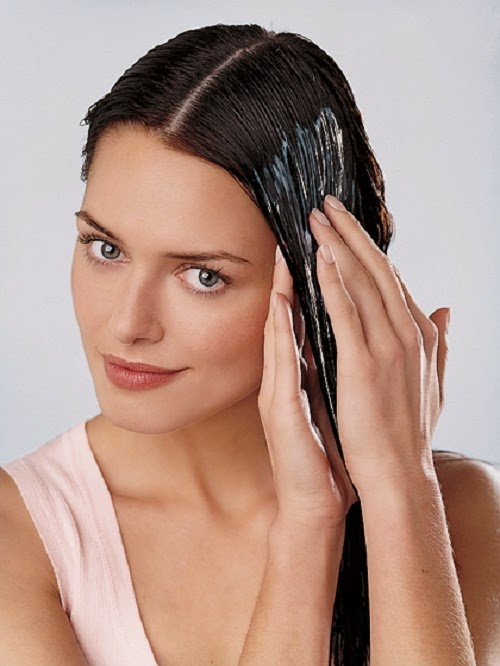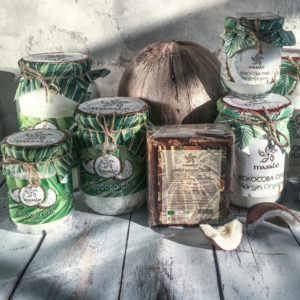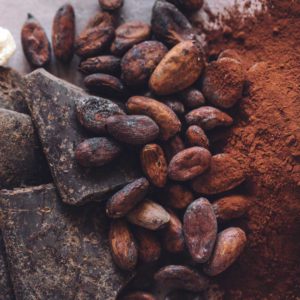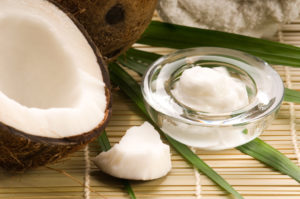Many thanks to our customers and subscribers for the feedback and for giving us the opportunity to talk about what interests you. Probably, the most frequently asked question is about the correctness of using coconut oil and -oli%d1%97/”>bans on it. We answer.
The only taboo for the use of natural coconut oil is food intolerance to coconut products. Or if you follow a special diet and certain foods in your diet are not approved by your doctor. In all other cases, only lazy people did not write or read about the wonderful properties of coconut oil. Use it or not – the choice is always yours.
On the basis of coconut oil at home and in industrial production, soaps, shampoos, creams, masks, tonics, gels, balms, conditioners, sprays, conditioner sprays, milk, fluids, powders, scrubs, etc., etc. are made. which appears on the market earlier than we get used to new names. More often than not, the same product is labeled differently on 100 different sites and labels, and this is without taking into account the processing of the base oil and other ingredients included in the skin and hair care products, which in themselves change the properties and methods of application of the final product. product!
One thing is clear – marketing does not sleep! And that’s probably a good thing. Only disorienting. We once wrote about the different types and labeling of coconut oils. Who is interested, you can read about it HERE
Yes, in fact coconut oil is indeed very often used, including in cosmetology. And depending on which product you prefer, the method of its application, exposure time and frequency of use of the same mask, for example, differ.
Coconut oil is rubbed in, sprinkled on, tapped with fingertips, or forcefully rubbed into the skin during massage or lymphatic drainage. And all this is correct! Just not everyone without exception.
If some balm applied to the ends of the hair did not live up to your expectations, this does not mean that it will not be a salvation for someone else. Therefore, one should not immediately announce the anathema to the manufacturer, and inform everyone who meets and crosses about the heavenly punishment that falls on the head in the form of a jar of balm.
Think for yourself: each of us has our own hormonal background (different on different days of the month), area and living conditions, age, susceptibility to diseases and reaction to stress, our own hair and skin type. And even if the scalp is oily, 100 people can have 101 reasons for oily hair! The same with dry skin or with age-related pigment spots and youthful acne.
Therefore, there are no single recipes for using and applying coconut oil that are universal for all people. You can find or create your own recipes purely by experimentation, starting with natural coconut oil. Find out exactly how to make him your friend, and then go ahead! There is no limit to perfection.
Unrefined coconut oil of the first cold press is applied to :
- head and any part of the body (we will not list them)
- dry and wet hair
- clean and not so clean hair
- hair ends and along its entire length
- hair roots and scalp20 minutes and overnight

Dear ladies, remember!
- In the case of natural cosmetics, there is an unspoken law: “Don’t put on your body what you wouldn’t eat.”
- If you opened a jar of coconut oil, and it doesn’t have coconut aroma or smells like anything but coconut, then it is:
- refined coconut oil, which does more harm than good
- low quality coconut oil
- not coconut oil at all
3. Be alert, don’t be lazy and carefully read the labels
4. Before using any purchased cosmetic product, first conduct an allergy test. 20 minutes of waiting is nothing compared to the blue lichen spots that formed on the face two hours before the meeting in response to an expensive cream. Or lips swollen to the size of Moldova. This also happens. The main thing then is not to glow in the dark))
And the last thing for today, but important!
Not TV commercials and neighbors’ guesses, but only a good trichologist together with a gynecologist-endocrinologist can determine the causes of your hair problems. Don’t risk it. Keep yourselves. And stay beautiful!









